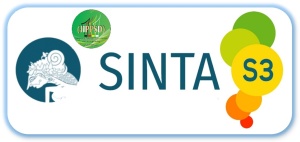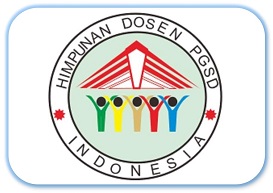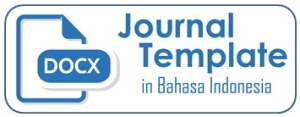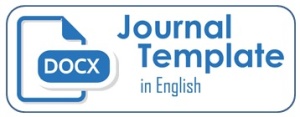Editorial Policies
Focus and Scope
The Journal Inovasi Pendidikan dan Pembelajaran Sekolah Dasar (JIPPSD) is a forum for scientific publications of research results and studies by lecturers, teachers, practitioners, consultants, education experts, and research articles for students who have a high concern for quality improvement, educational innovation, and learning in elementary schools. JIPPSD also has a specific scope regarding innovations in learning the Indonesian Language, Mathematics, Science, Social Sciences, Citizenship Education, Arts, and Culture, as well as the use of technology for Elementary Schools.
Section Policies
Articles
 Open Submissions
Open Submissions Indexed
Indexed Peer Reviewed
Peer Reviewed
Peer Review Process
The peer review process can be broadly summarized into 10 steps. Explore what’s involved, below.
Editor Feedback: “Reviewers should remember that they represent the journal's readers. Will the readers of this particular journal find this informative and useful?”
1. Submission of Paper
The corresponding or submitting author submits the paper to the journal. All manuscripts submitted to this journal (JIPPSD) must follow the Focus and Scope and Author Guidelines of this journal. The submitted manuscripts must fulfil scientific merit or novelty appropriate to the focus and scope of this journal.
2. Editorial Office Assessment
The editorial team of JIPPSD checks the paper’s composition and arrangement against the journal’s Author Guidelines to make sure it includes the required sections and stylizations. The submitted manuscripts must fulfil the maximum 20% of plagiarism ( Turnitin)score and send a paper pre-inspection result to the authors or co-authors. The paper that the authors improved must be sent it back to JIPPSD and after the editor received the improved paper, it will be forwarded to the reviewer. The quality of the paper is not assessed at this point.
3. Appraisal by the Editor-in-Chief (EIC)
The EIC checks that the paper is appropriate for the journal and is sufficiently original and interesting. If not, the paper may be rejected without being reviewed any further.
4. Peer Review Process
The submitted manuscripts to this journal will be peer-reviewed by at least 2 (two) or more expert reviewers from Peer-Reviewers Team. The reviewers give valuable scientific comments improving the contents of the manuscript. Sometimes (if required) a third peer-reviewer is needed to give critical comments to the submitted manuscript. The review process used in this journal is a blind review system.
5. Invitation to Reviewers
The handling editor sends invitations to individuals he or she believes would be appropriate reviewers. As responses are received, further invitations are issued, if necessary, until the required number of acceptances is obtained.
6. Response to Invitations
Potential reviewers consider the invitation against their own expertise, conflicts of interest, and availability. They then accept or decline. If possible, when declining, they might also suggest alternative reviewers.
7. Review is Conducted
The reviewer sets time aside to read the paper several times. The first read is used to form an initial impression of the work. If major problems are found at this stage, the reviewer may feel comfortable rejecting the paper without further work. Otherwise, they will read the paper several more times, taking notes so as to build a detailed point-by-point review. The review is then submitted to the journal, with a recommendation to accept or reject it – or else with a request for revision (usually flagged as either major or minor) before it is reconsidered.
8. Journal Evaluates the Reviews
The handling editor considers all the returned reviews before making an overall decision. If the reviews differ widely, the editor may invite an additional reviewer so as to get an extra opinion before making a decision.
9. The Decision is Communicated
The editor sends a decision email to the author including any relevant reviewer comments. Whether the comments are anonymous or not will depend on the type of peer review that the journal operates.
10. Next Steps
Open Access Policy
All research articles published in Jurnal Pendidikan dan Pembelajaran Sekolah Dasar Open Access journals are fully open access: immediately freely available to read, download and share. Articles are published under the terms of a Creative Commons CC BY 4.0 International License which permits use, distribution, and reproduction in any medium, provided the original work is properly cited.
An Open Access Publication is one that meets the following two conditions:
- The author(s) and copyright holder(s) grant(s) to all users a free, irrevocable, worldwide, perpetual right of access to, and a license to copy, use, distribute, transmit and display the work publicly and to make and distribute derivative works, in any digital medium for any responsible purpose, subject to proper attribution of authorship, as well as the right to make small numbers of printed copies for their personal use.
- A complete version of the work and all supplemental materials, including a copy of the permission as stated above, in a suitable standard electronic format is deposited immediately upon initial publication in at least one online repository that is supported by an academic institution, scholarly society, government agency, or other well-established organization that seeks to enable open access, unrestricted distribution, interoperability, and long-term archiving.
Notes:
Open access is a property of individual works, not necessarily journals or publishers.
- Community standards, rather than copyright law, will continue to provide the mechanism for enforcement of proper attribution and responsible use of the published work, as they do now.
This journal provides immediate open access to its content on the principle that making research freely available to the public supports a greater global exchange of knowledge.
Archiving
This journal utilizes the LOCKSS system to create a distributed archiving system among participating libraries and permits those libraries to create permanent archives of the journal for purposes of preservation and restoration. More...
Publication Ethics
Publication Ethics Statement
Jurnal Inovasi Pendidikan dan Pembelajaran Sekolah Dasar (JIPPSD) is a peer-reviewed journal. This statement clarifies the ethical behavior of all parties involved in the act of publishing an article in this journal, including the author, the chief editor, the Editorial Board, the peer-reviewer and the publisher (Universitas Negeri Padang). This statement is based on COPE’s Code of Conduct and Best Practice Guidelines for Journal Editors.
Ethical Guideline for Journal Publication
The publication of an article in a peer-reviewed Jurnal Inovasi Pendidikan dan Pembelajaran Sekolah Dasar (JIPPSD) is an essential building block in the development of a coherent and respected network of knowledge. It is a direct reflection of the quality of the work of the authors and the institutions that support them. Peer-reviewed articles support and embody the scientific method. It is, therefore, important to agree upon standards of expected ethical behavior for all parties involved in the act of publishing: the author, the journal editor, the peer reviewer, the publisher, and the society.
Publisher and Editor
Universitas Negeri Padang as the publisher of Jurnal Inovasi Pendidikan dan Pembelajaran Sekolah Dasar (JIPPSD) takes its duties of guardianship over all stages of publishing extremely seriously and we recognize our ethical and other responsibilities. We are committed to ensuring that advertising, reprint, or other commercial revenue has no impact or influence on editorial decisions. In addition, the Universitas Negeri Padang and Editorial Board will assist in communications with other journals and/or publishers where this is useful and necessary.
Publication decisions: The editor of the Jurnal Inovasi Pendidikan dan Pembelajaran Sekolah Dasar (JIPPSD) is responsible for deciding which of the articles submitted to the journal should be published. The validation of the work in question and its importance to researchers and readers must always drive such decisions. The editors may be guided by the policies of the journal's editorial board and constrained by such legal requirements as shall then be in force regarding libel, copyright infringement, and plagiarism. The editors may confer with other editors or reviewers in making this decision.
Fair play: An editor at any time evaluates manuscripts for their intellectual content without regard to race, gender, sexual orientation, religious belief, ethnic origin, citizenship, or political philosophy of the authors.
Confidentiality: The editor and any editorial staff must not disclose any information about a submitted manuscript to anyone other than the corresponding author, reviewers, potential reviewers, other editorial advisers, and the publisher, as appropriate.
Disclosure and conflicts of interest: Unpublished materials disclosed in a submitted manuscript must not be used in an editor's own research without the express written consent of the author.
Reviewers
Contribution to Editorial Decisions: Peer review assists the editor in making editorial decisions and through the editorial communications with the author may also assist the author in improving the paper.
Promptness: Any selected referee who feels unqualified to review the research reported in a manuscript or knows that its prompt review will be impossible should notify the editor and excuse himself from the review process.
Confidentiality: Any manuscripts received for review must be treated as confidential documents. They must not be shown to or discussed with others except as authorized by the editor.
Standards of Objectivity: Reviews should be conducted objectively. Personal criticism of the author is inappropriate. Referees should express their views clearly with supporting arguments.
Acknowledgment of Sources: Reviewers should identify relevant published work that has not been cited by the authors. Any statement that an observation, derivation, or argument had been previously reported should be accompanied by the relevant citation. A reviewer should also call to the editor's attention any substantial similarity or overlap between the manuscript under consideration and any other published paper of which they have personal knowledge.
Disclosure and Conflict of Interest: Privileged information or ideas obtained through peer review must be kept confidential and not used for personal advantage. Reviewers should not consider manuscripts in which they have conflicts of interest resulting from competitive, collaborative, or other relationships or connections with any of the authors, companies, or institutions connected to the papers.
Authors
Reporting standards: Authors of reports of original research should present an accurate account of the work performed as well as an objective discussion of its significance. Underlying data should be represented accurately in the paper. A paper should contain sufficient detail and references to permit others to replicate the work. Fraudulent or knowingly inaccurate statements constitute unethical behavior and are unacceptable.
Data Access and Retention: Authors are asked to provide the raw data in connection with a paper for editorial review, and should be prepared to provide public access to such data (consistent with the ALPSP-STM Statement on Data and Databases), if practicable, and should in any event be prepared to retain such data for a reasonable time after publication.
Originality and Plagiarism: The authors should ensure that they have written entirely original works, and if the authors have used the work and/or words of others that this has been appropriately cited or quoted.
Multiple, Redundant or Concurrent Publication: An author should not, in general, publish manuscripts describing essentially the same research in more than one journal or primary publication. Submitting the same manuscript to more than one journal concurrently constitutes unethical publishing behavior and is unacceptable.
Acknowledgment of Sources: Proper acknowledgment of the work of others must always be given. Authors should cite publications that have been influential in determining the nature of the reported work.
Authorship of the Paper: Authorship should be limited to those who have made a significant contribution to the conception, design, execution, or interpretation of the reported study. All those who have made significant contributions should be listed as co-authors. Where there are others who have participated in certain substantive aspects of the research project, they should be acknowledged or listed as contributors. The corresponding author should ensure that all appropriate co-authors and no inappropriate co-authors are included on the paper and that all co-authors have seen and approved the final version of the paper and have agreed to its submission for publication.
Disclosure and Conflicts of Interest: All authors should disclose in their manuscript any financial or other substantive conflicts of interest that might be construed to influence the results or interpretation of their manuscript. All sources of financial support for the project should be disclosed.
Fundamental errors in published works: When an author discovers a significant error or inaccuracy in his/her own published work, it is the author’s obligation to promptly notify the journal editor or publisher and cooperate with the editor to retract or correct the paper.
Plagiarism and Retraction Policy
Jurnal Inovasi Pendidikan dan Pembelajaran Sekolah Dasar (JIPPSD) Editorial board recognizes that plagiarism is not acceptable and therefore establishes the following policy stating specific actions (penalties) upon identification of plagiarism/similarities in articles submitted for publication in Jurnal Inovasi Pendidikan dan Pembelajaran Sekolah Dasar (JIPPSD). Jurnal Inovasi Pendidikan dan Pembelajaran Sekolah Dasar (JIPPSD) will use Turnitin's originality checking software as the tool in detecting similarities of texts in the article manuscripts and the final version articles ready for publication. A maximum of 20% of similarities is allowed for the submitted papers. Should we find more than 20% of the similarity index, the article will be returned to the author for correction and resubmission.
Definition:
Plagiarism involves the "use or close imitation of the language and thoughts of another author and the representation of them as one's own original work."
Policy:
Papers must be original, unpublished, and not pending publication elsewhere. Any material taken verbatim from another source needs to be clearly identified as different from the present original text by (1) indentation, (2) use of quotation marks, and (3) identification of the source.
Any text of an amount exceeding fair use standards (herein defined as more than two or three sentences or the equivalent thereof) or any graphic material reproduced from another source requires permission from the copyright holder and, if feasible, the original author(s) and also requires identification of the source; e.g., previous publication.
When plagiarism is identified, the Editor in Chief responsible for the review of this paper and will agree on measures according to the extent of plagiarism detected in the paper in agreement with the following guidelines:
Level of Plagiarism
Minor:
A short section of another article is plagiarized without any significant data or idea taken from the other paper
Action: A warning is given to the authors and a request to change the text and properly cite the original article is made
Intermediate: A significant portion of a paper is plagiarized without proper citation to the original paper
Action: The submitted article is rejected and the authors are forbidden to submit further articles for one year
Severe: A significant portion of a paper is plagiarized that involves reproducing original results or ideas presented in another publication
Action: The paper is rejected and the authors are forbidden to submit further articles for five years.
It is understood that all authors are responsible for the content of their submitted paper as they all read and understand Jurnal Inovasi Pendidikan dan Pembelajaran Sekolah Dasar (JIPPSD) Copyright and Licensing Terms. If a penalty is imposed for plagiarism, all authors will be subject to the same penalty.
If the second case of plagiarism by the same author(s) is identified, a decision on the measures to be enforced will be made by the Editorial board (Editor-in-Chief, and Editorial members) with the Chair of the Editor in Chief. The author(s) might be forbidden to submit further articles forever.
This policy applies also to material reproduced from another publication by the same author(s). If an author uses text or figures that have previously been published, the corresponding paragraphs or figures should be identified and the previous publication referenced. It is understood that in the case of a review paper or a paper of a tutorial nature much of the material was previously published.
The author should identify the source of the previously published material and obtain permission from the original author and the publisher. If an author submits a manuscript to Jurnal Inovasi Pendidikan dan Pembelajaran Sekolah Dasar (JIPPSD) with significant overlap with a manuscript submitted to another journal simultaneously, and this overlap is discovered during the review process or after the publications of both papers, the editor of the other journal is notified and the case is treated as a severe plagiarism case. Significant overlap means the use of identical or almost identical figures and identical or slightly modified text for one-half or more of the paper. For self-plagiarism of less than one-half of the paper but more than one-tenth of the paper, the case shall be treated as intermediate plagiarism. If self-plagiarism is confined to the methods section, the case shall be considered as minor plagiarism.
If an author uses some of his previously published material to clarify the presentation of new results, the previously published material shall be identified and the difference to the present publication shall be mentioned. Permission to republish must be obtained from the copyright holder. In the case of a manuscript that was originally published in conference proceedings and then is submitted for publication in Jurnal Inovasi Pendidikan dan Pembelajaran Sekolah Dasar (JIPPSD) either in identical or in expanded form, the authors must identify the name of the conference proceedings and the date of the publication and obtain permission to republish from the copyright holder. The editor may decide not to accept this paper for publication.
However, an author shall be permitted to use material from an unpublished presentation, including visual displays, in a subsequent journal publication. In the case of a publication being submitted, that was originally published in another language, the title, date, and journal of the original publication must be identified by the authors, and the copyright must be obtained. The editor may accept such a translated publication to bring it to the attention of a wider audience. The editor may select a specific paper that had been published (e.g. a “historic” paper) for republication in order to provide a better perspective of a series of papers published in one issue of Jurnal Inovasi Pendidikan dan Pembelajaran Sekolah Dasar (JIPPSD). This republication shall be clearly identified as such and the date and journal of the original publication shall be given, and the permission of the author(s) and the publisher shall be obtained.
The Jurnal Inovasi Pendidikan dan Pembelajaran Sekolah Dasar (JIPPSD) layout editor for the Journal is responsible for maintaining the list of authors subjected to penalties and will check that no authors of a submitted paper are on this list. If a banned author is identified, the layout editor will inform the Editor-in-Chief who will take appropriate measures. This policy will be posted on the website with the instructions for submitting a manuscript, and a copy will be sent to the authors with the confirmation email upon initial receipt of their original manuscript.
Retraction and/or Corrections
Authors are discouraged from withdrawing submitted manuscripts after it is in the publication process (review, copyedit, layout, etc.,). During the time, Jurnal Inovasi Pendidikan dan Pembelajaran Sekolah Dasar (JIPPSD) had spent valuable resources besides time spent in the process.
Jurnal Inovasi Pendidikan dan Pembelajaran Sekolah Dasar (JIPPSD) editors shall consider retracting a publication if:
- they have clear evidence that the findings are unreliable, either as a result of misconduct (e.g. data fabrication) or honest error (e.g. miscalculation or experimental error)
- the findings have previously been published elsewhere without proper crossreferencing, permission or justification (i.e. cases of redundant publication)
- it constitutes plagiarism
- it reports unethical research
Jurnal Inovasi Pendidikan dan Pembelajaran Sekolah Dasar (JIPPSD) editors shall consider issuing an expression of concern if:
- they receive inconclusive evidence of research or publication misconduct by the authors
- there is evidence that the findings are unreliable but the authors’ institution will not investigate the case
- they believe that an investigation into alleged misconduct related to the publication either has not been or would not be, fair and impartial or conclusive
- an investigation is underway but a judgment will not be available for a considerable time
Jurnal Inovasi Pendidikan dan Pembelajaran Sekolah Dasar (JIPPSD) editors shall consider issuing a correction if:
- a small portion of an otherwise reliable publication proves to be misleading (especially because of honest error)
- the author/contributor list is incorrect (i.e. a deserving author has been omitted or somebody who does not meet authorship criteria has been included)
The mechanism follows the guidelines from the Committee on Publication Ethics (COPE) which can be accessed at https://publicationethics.org/files/retraction%20guidelines.pdf. For your convenience, the same document is shown below.
Screening for Plagiarism
In publishing, Jurnal Inovasi Pendidikan dan Pembelajaran Sekolah Dasar (JIPPSD) strongly against any case of plagiarism on its own merits. JIPPSD commits to deterring plagiarism, including self-plagiarism.
The authors should ensure that they have written entirely original works, and if the authors have used the work and/or words of others that this has been appropriately cited or quoted. Papers found with such problems are automatically rejected and authors are so advised. Also, significant parts of the work have not been published. The author also respects entirely the Author Guidelines of JIPPSD regarding redundant, duplicate, or fraudulent publications.
Before the author submits the manuscript to JIPPSD please at least check first by using a plagiarism checker. When submitting a published article for an originality check, JIPPSD recommends using Turnitin Plagiarism Scanner. It is totally free and easy-to-use step-by-step process. The similarity rate allowed in the JIPPSD a maximum of 20 percent. Before using Turnitin for the first time, we highly recommend that the author reads the instruction to use this plagiarism detector.
All manuscripts must be free from plagiarism contents. All authors are suggested to use plagiarism detection software to do the similarity checking. Editors check the plagiarism detection of articles in this journal by using Turnitin software.




















